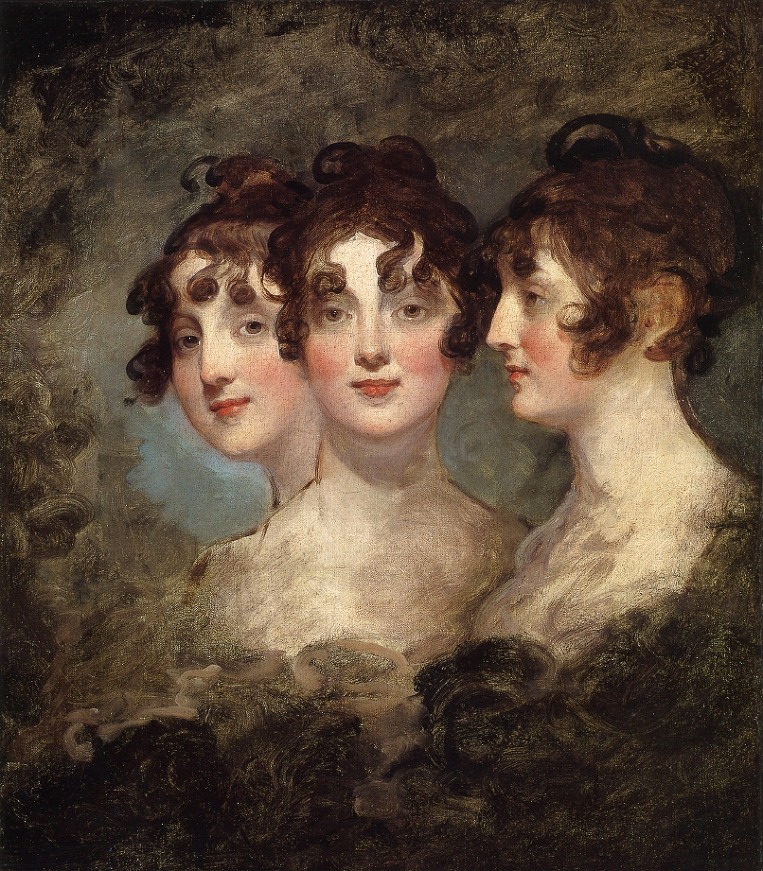
Maria Cecil Gist (detail)
by Matthew Harris Jouett. Oil on convas, Lexington, KY, 1820-25. Courtesy of Rosenbach Museum & Library, Philadelphia. Gift of Mrs. Anderson Gratz 1984.0005.
The dearest friend and most faithful correspondent of Rebecca's middle years was her non-Jewish sister-in-law in Kentucky, Maria Cecil Gist Gratz (1797-1841). Maria's acquaintance with the Gratz family began, not with Benjamin, her future husband, but with Rebecca, whom she met when she accompanied her mother and her ailing sister to Philadelphia in 1818 in search of medical assistance.
Despite the sixteen years difference in age, Rebecca did not fall into the "aunt" role which characterized her relationships with so many younger men and women. Maria's intelligence, her literary interests, her charming personality and, as their friendship progressed, the revelation that she too was a spiritual pilgrim would serve to cement a friendship between equals.
This is Rebecca's description of Maria Gist shortly after she met her (note the use of the terms "good sense" and "sensible," which were Rebecca's highest forms of praise):
"[S]he is a girl of great good sense and has a cultivated mind. Too remote from fashionable education to be accomplished in music and dancing she has bestowed more time in reading and as her family were genteel and well-bred and her education directed by a sensible woman [Maria's mother] her manners are exceedingly frank and engaging. Indeed I have rarely met with persons more calculated to attract affection...."
Socially and economically, the two were peers. Maria's father, Nathaniel Gist, a Revolutionary War veteran, received a large land grant and moved his family from Virginia to their new estate Canewood outside of Lexington, Kentucky in the 1790's. A decade after his death, his widow had married General Charles Scott who soon after become governor of Kentucky (1808-1812). Like Rebecca, Maria had grown up as part of the local elite.
The two women had just met when Maria's sister died suddenly. Rebecca offered the hospitality of the Gratz home to Maria and her mother so that they could mourn in private among people who sympathized rather than continue at the public boardinghouse where they had been staying.
If he had not been introduced to her earlier in her visit, Benjamin Gratz, Rebecca's youngest brother, made Maria's acquaintance during the two weeks she and her mother spent in the Gratz household before they returned to Kentucky. Since he was about to go west on business Mrs. Scott and Maria invited him to Canewood when he was in the area. Ben left a few weeks after Maria started her trip home. At Baltimore, he received a letter from Rebecca saying that she had heard from Maria: "She writes charmingly & sends kind messages to you" [Rebecca's emphasis]. If Ben had not already determined to visit Canewood at his earliest opportunity, this message would have certainly encouraged him to do so. Benjamin Gratz would return to Philadelphia many times in the course of his long life, but he would never live there again: his future was in Kentucky and with Maria.
(Rebecca's description of Maria is in a letter to Maria Fenno Hoffman in the Gratz Family Collection at the American Jewish Historical Society. Her letter to Ben is published in Letters of Rebecca Gratz, edited by David Philipson.)
